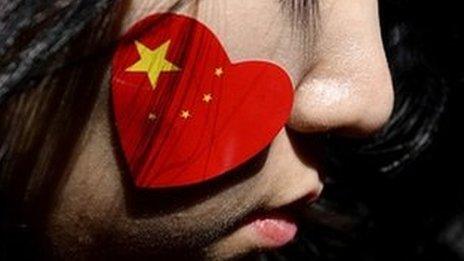China 70th anniversary: Pigeon ban and lockdowns as countdown begins
- Published
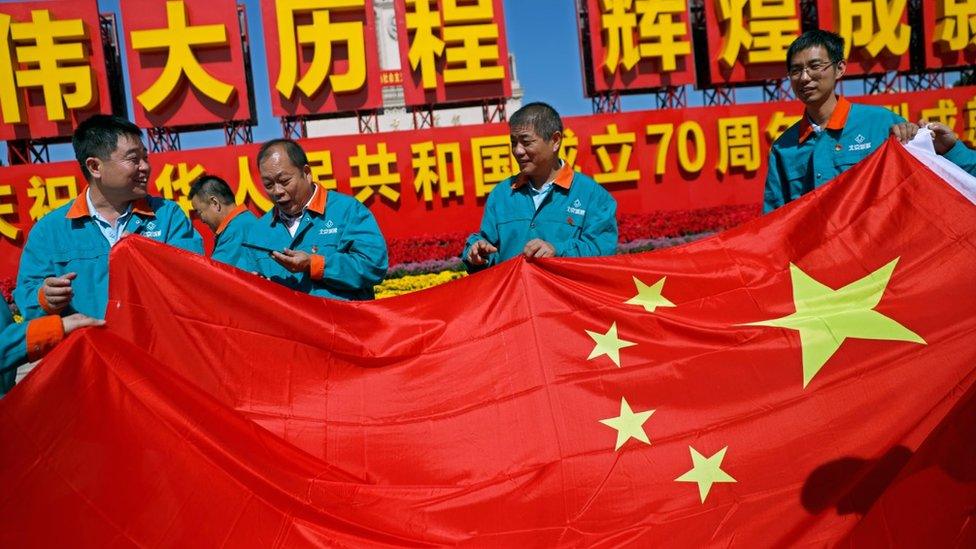
China is getting dressed up for its big birthday party
One week from now, the People's Republic of China will mark its 70th anniversary with celebrations on a scale not seen in China in decades.
Beijing is pulling out all stops and 1 October will be flush with fireworks, fanfare and a huge military parade.
To ensure it goes smoothly, authorities have been ramping up security in the capital - and online - for weeks.
But with yet more protests expected in Hong Kong, the territory might just rain on China's parade.
What is it all about?
The birth of modern China was declared on 1 October 1949, after the communists under Mao Zedong won the civil war that followed World War Two.
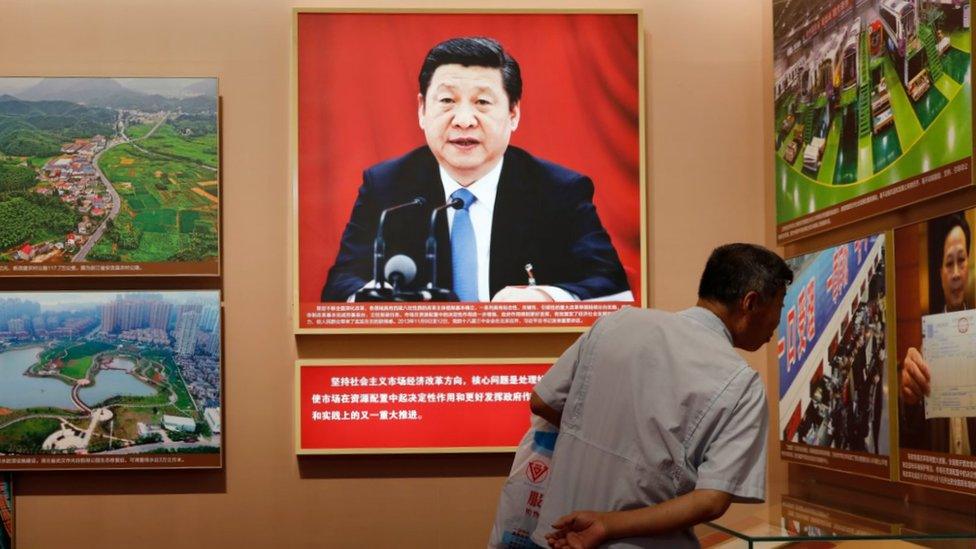
Exhibitions are highlighting the achievements of the Communist Party
The date is marked every year, but celebrations for this 70th anniversary are expected to eclipse previous events.
It's the first big anniversary since China has emerged as a global power. While 10 years ago China was a superpower in the making, it is now the world's second largest economy, almost eye-to-eye with the United States.
What to expect?
The main celebrations will take place in the capital, Beijing, where there will be a grand military parade with "advanced weapons" on display, followed by a "mass pageant".
President Xi Jinping - considered the most powerful Chinese leader since Mao - will address the Chinese people. His speech is expected to celebrate China's rapid growth and which will be closely watched for any indication of the country's direction in the coming years.
The president will also hand out honours for contributions to the country and in the evening there will be a grand gala and fireworks show.
All official Chinese celebrations are carefully choreographed and the success of this one is particularly important to the government.
The Dos and Don'ts
The parade - open to invited guests only - will take place around Tiananmen Square in central Beijing. The surrounding area will be practically under lockdown, and in fact has been so several times already.
During rehearsals leading up to the big day, hotels near Tiananmen Square told guests that for several hours each day, no-one would be able to leave the hotel or return to it should they be out, leading to much travel chaos and rebookings.
Many shops and restaurants in the centre are also closed or have shortened hours and some subway stations are temporarily shut.
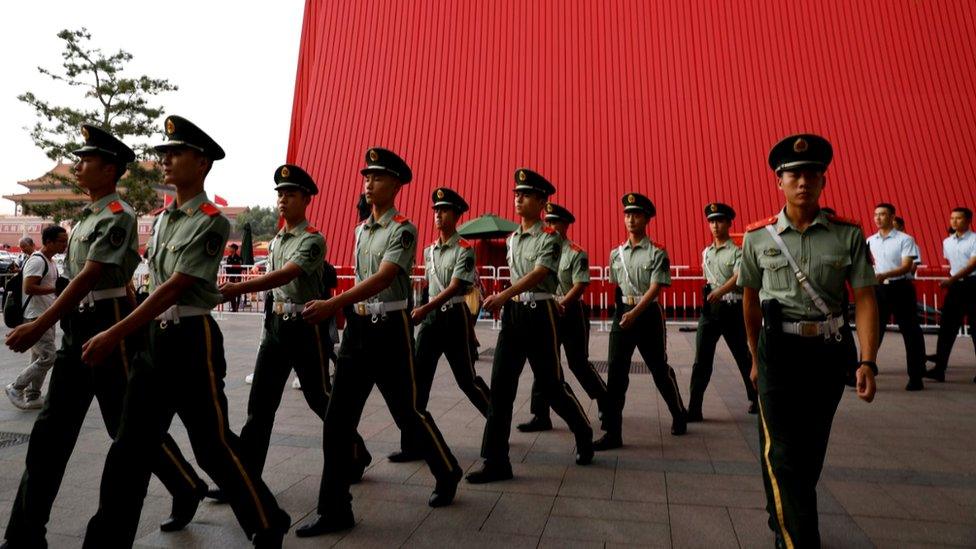
Security is tight ensure the party goes to plan
Trains to Beijing are running numerous safety checks on their passengers and vehicles going into the city are also being tightly watched.
On the big day itself, areas around Tiananmen Square will be blocked and guarded. Local residents will need to identify themselves if they want to pass.
To ensure the sun will shine brightly on the celebration in notoriously polluted Beijing, several coal plants and construction sites in and around the city have been ordered to stop work for the duration.
There's also a ban on any low-flying aerial vehicles in place. That means anything from light aircraft to drones, balloons and even racing pigeons.
Censorship galore
Across much of the city centre, there are national flags set up at every door. Voluntary inspectors are monitoring the streets and locals have told the BBC they're being questioned after having even brief conversations with foreigners
One person said she was asked by an inspector: "Who were those foreigners? Why were they here?"
The tight control naturally extends online as well. Popular social media platform Weibo said it was deleting content that "distorts" or "insults" the country's history ahead of the anniversary.
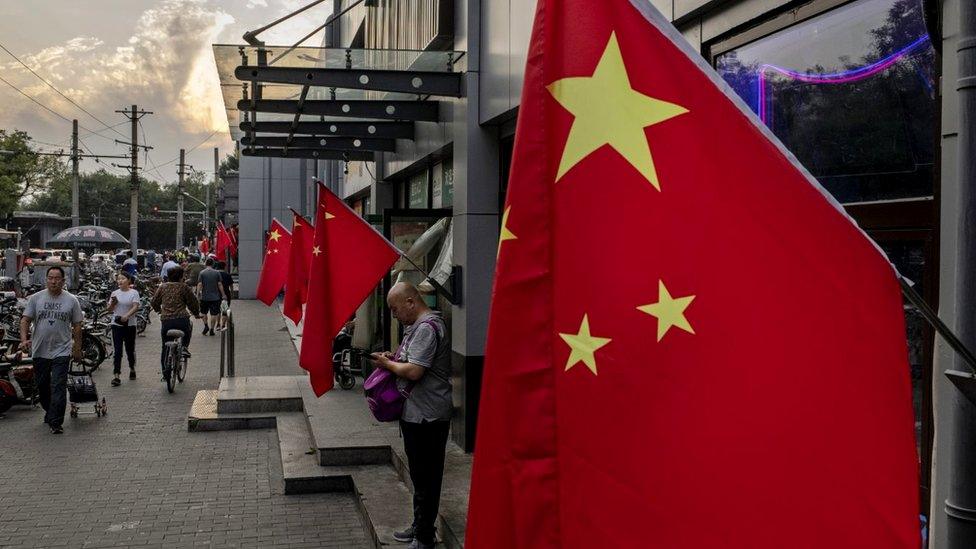
Every house and every shop is sporting a national flag
Chinese journalists are always expected to toe the party line anyway, but starting in October they will have to pass an extra test to prove they are versed particularly in Xi Jinping's teachings, officially called Xi Jinping Thought on Socialism with Chinese Characteristics, which has been written into the constitution.
Whether or not they pass the exam will then determine whether they'll be accredited as journalists.
"The fundamental point with this 'training' and indoctrination process isn't so much about the content," David Bandurski, co-director of the China Media Project told the BBC.
"It is about reinforcing the message and understanding among journalists that they work, first and foremost, for the Chinese Communist Party, and serve its agenda."
So not only will the events be choreographed - the domestic coverage of them will also be tightly guarded.
What about Hong Kong?
Despite Beijing's determination to let its achievements shine on 1 October, there's a good chance Hong Kong will pull focus.
Anti-Beijing protests always take place in Hong Kong on China's National Day, but this time, the activists know that the world is watching.
Anti-government protests have rocked the city for months and the situation shows no sign of dying down.
Clashes between police and activists have been becoming increasingly violent, with police using tear gas and activists storming parliament.
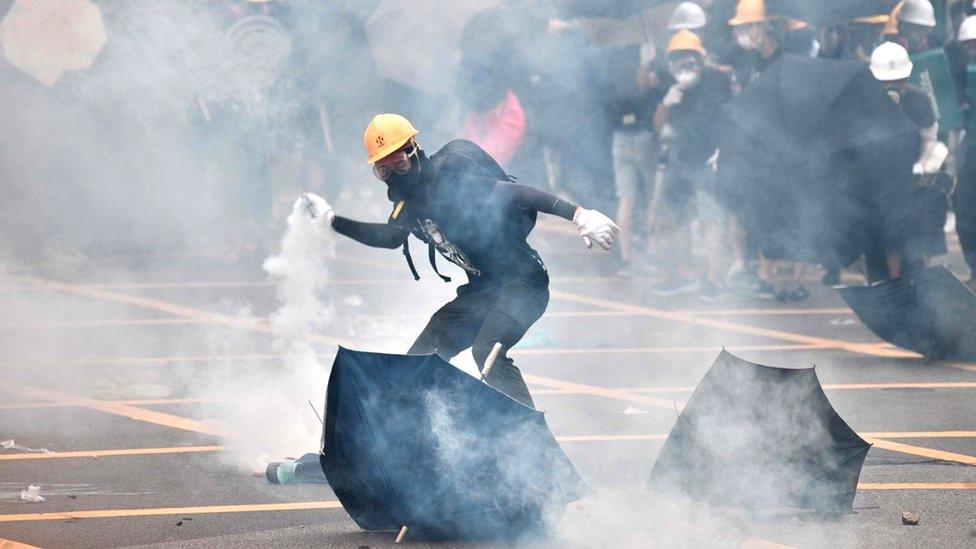
The protests have often escalated into violent clashes
That means two things for 1 October: official celebrations in the territory are being toned down to avoid clashes - the annual fireworks display has been cancelled - while at the same time, activists are planning to step up their protests.
On Sunday 29 September, a "Global Anti Totalitarianism March" is scheduled to take place at various locations around the world in support of Hong Kong.
On 1 October itself, a march in central Hong Kong is planned with everyone asked to wear black.
If the past weeks' demonstrations are anything to go by, the smiles and celebrations in Beijing will be competing for media space with pictures of tear gas and angry young protesters in Hong Kong.
- Published22 September 2019
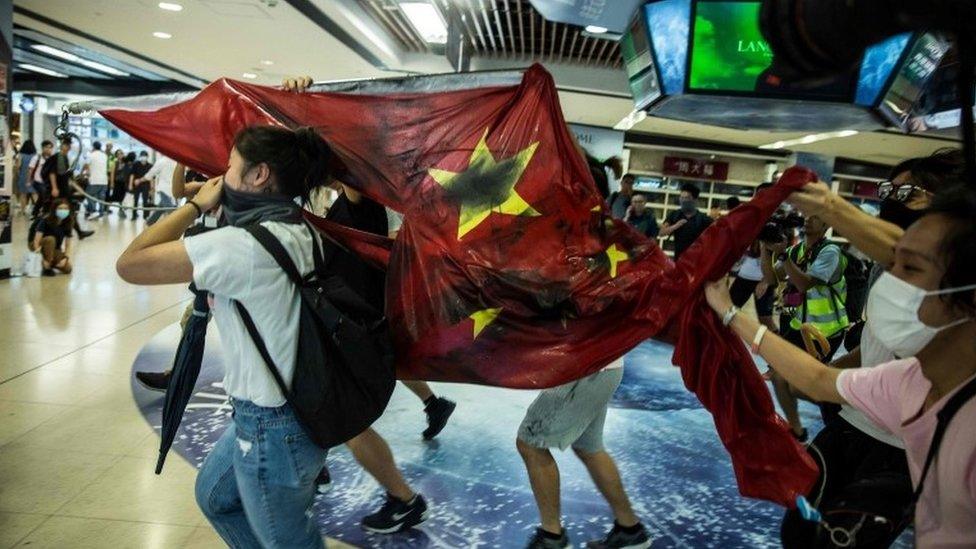
- Published28 November 2019
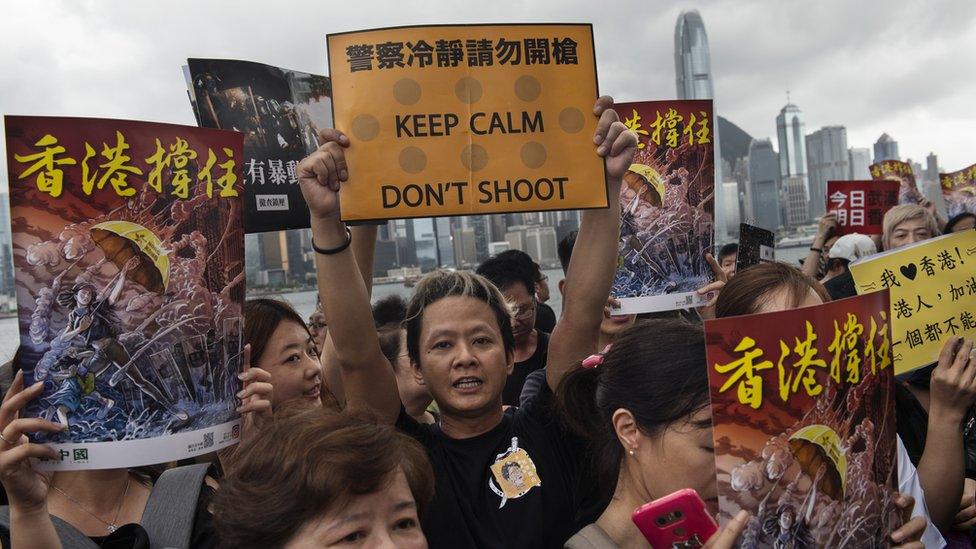
- Published21 May 2020
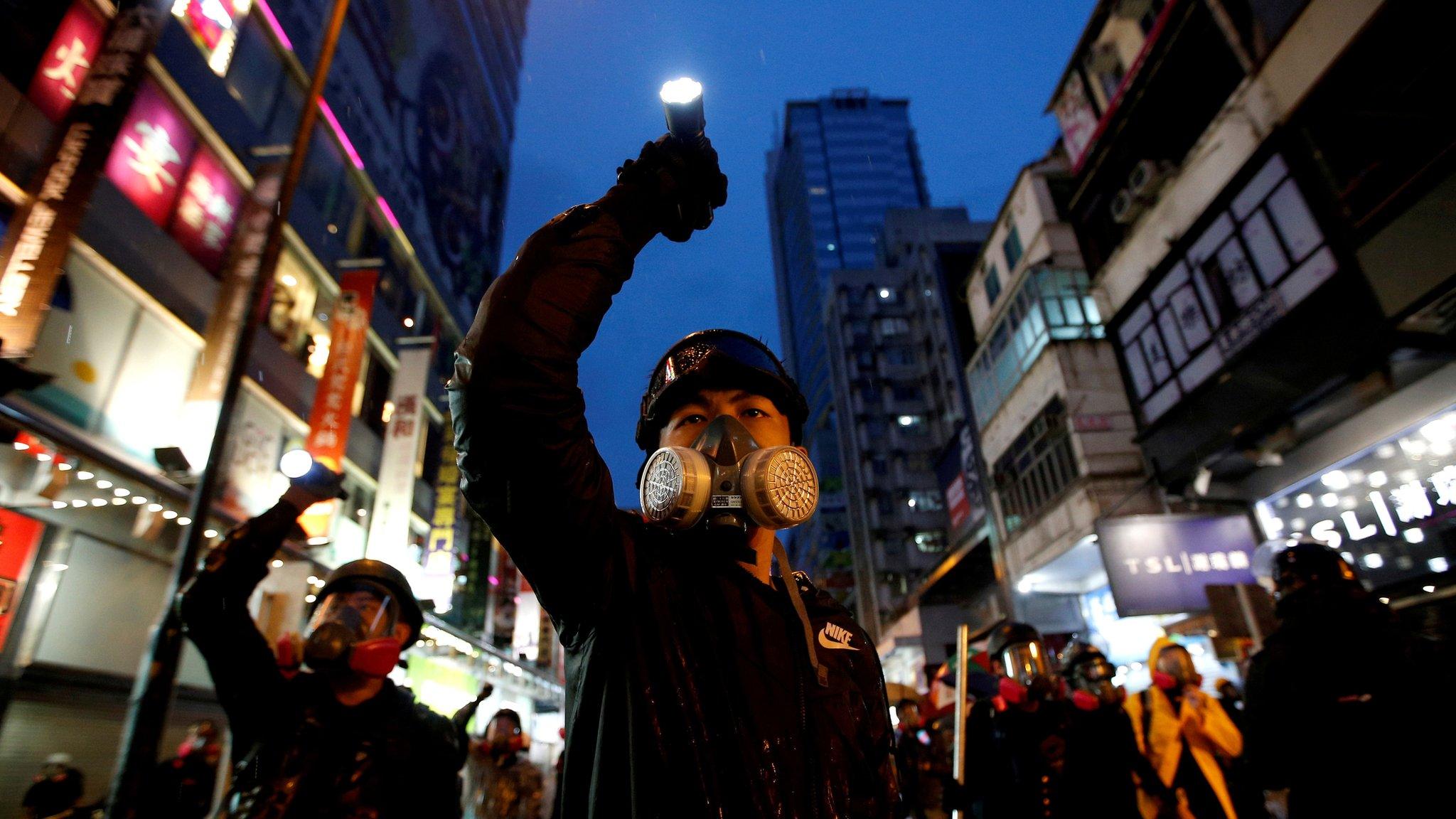
- Published28 August 2019
